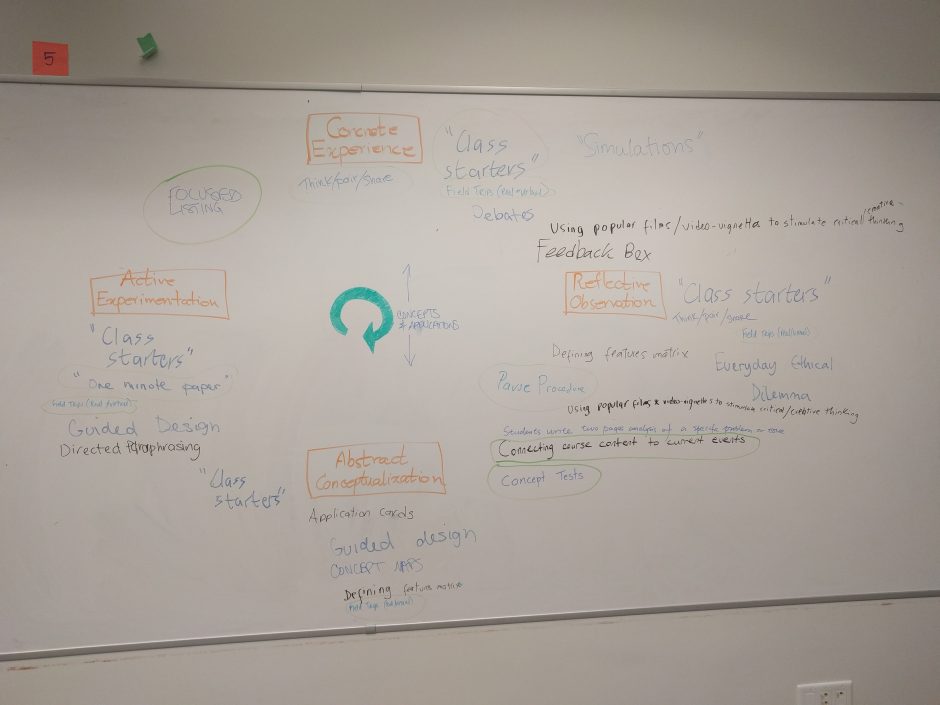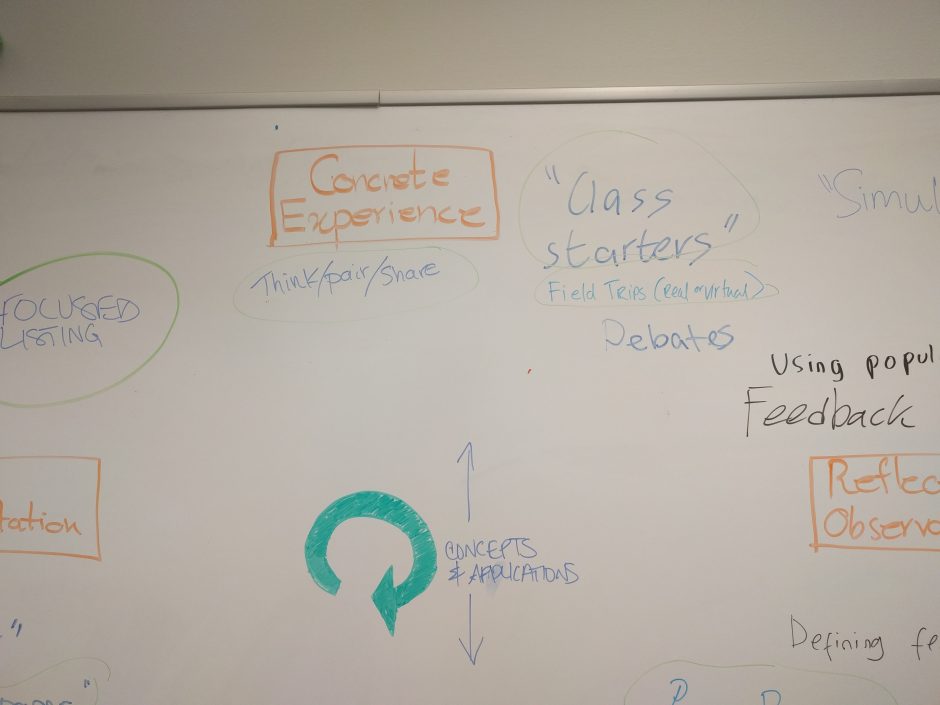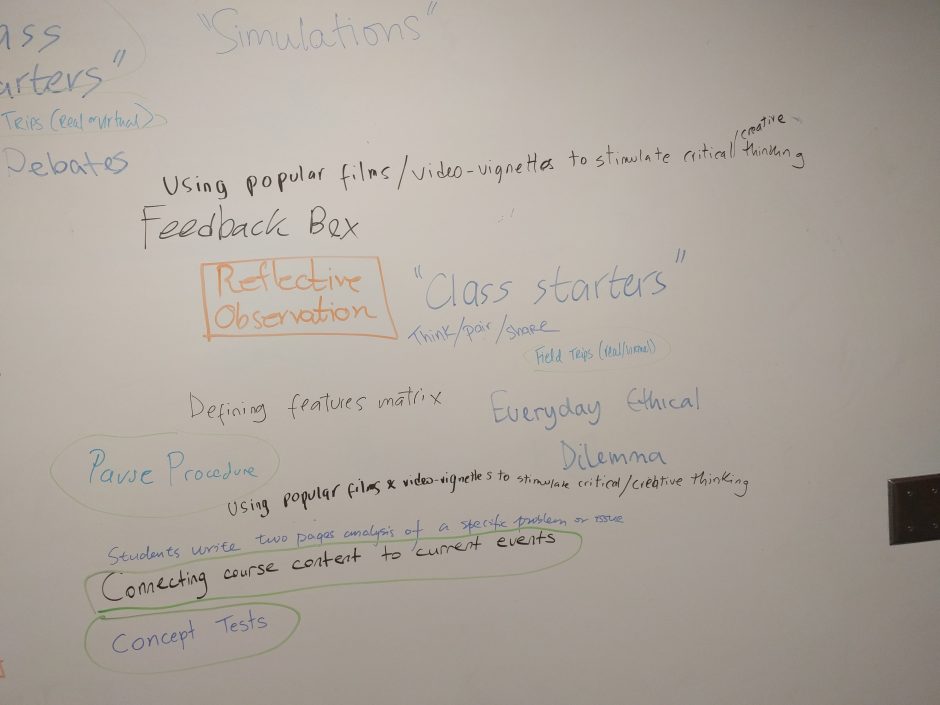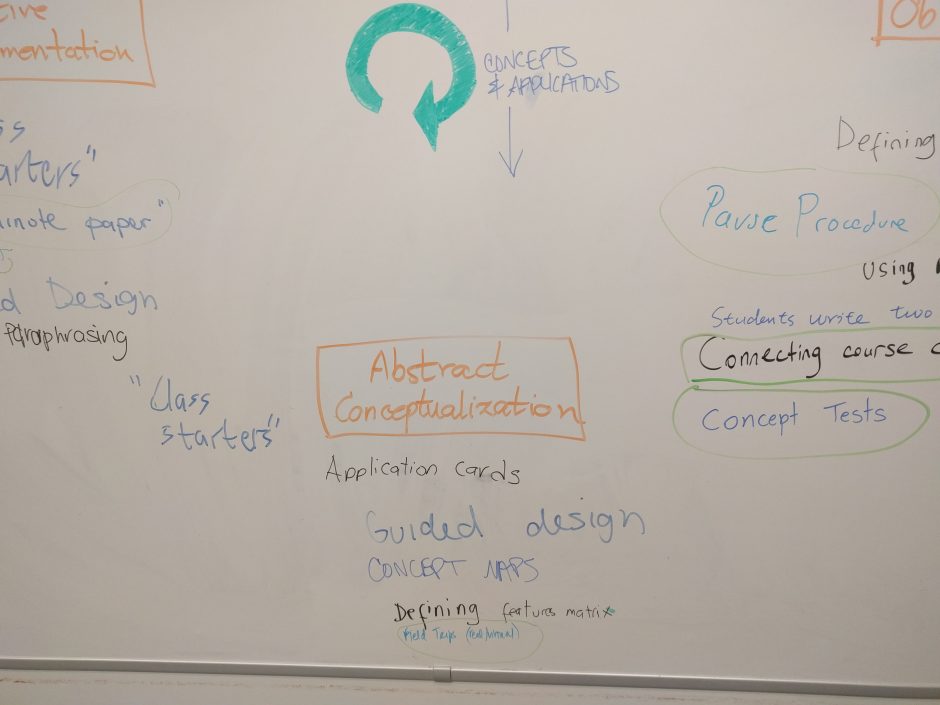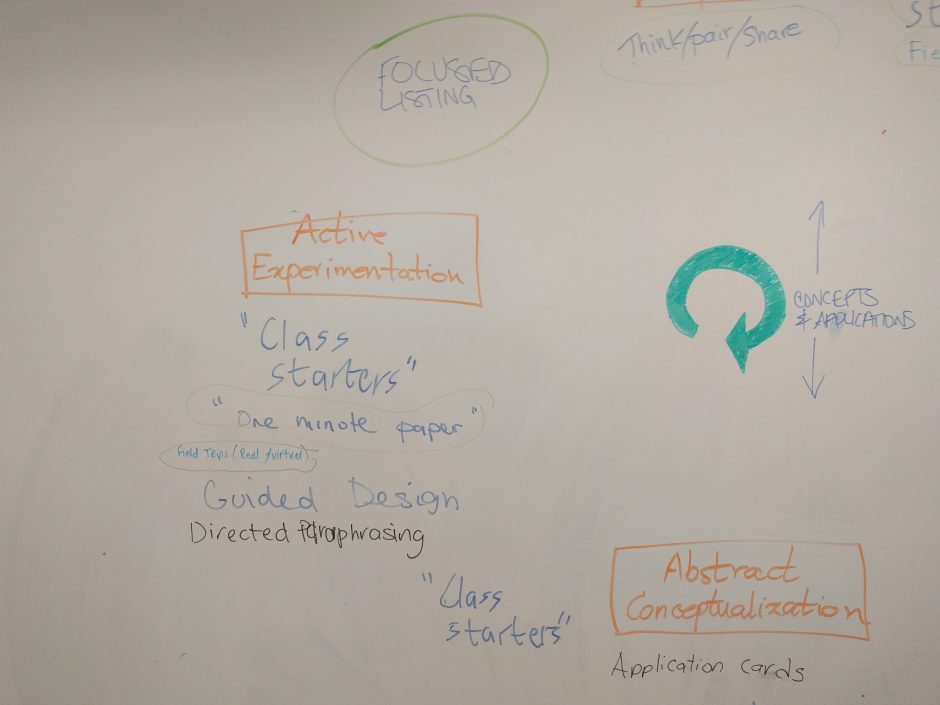As TAs and Graduate Students, we are often quite familiar with the theories and research in our own discipline – but is that all you really need to know to be able to teach those things effectively? These sessions help us to integrate theory and research about teaching into our teaching practice. If we start with an understanding of what these theories say, and what our research into teaching suggests, we can teach strategically and effectively, helping our students to grasp the often difficult theories or approaches we are encouraging them to take.
In order to complete the theme, you much register for and complete each of the sessions listed below. In addition, you must complete the pre-session module before the institute begins, and the post session module after the final session in the theme. If you complete the whole theme, you will be eligible for a signed letter of completion on this theme to be placed in your Teaching Portfolio.
Experiential Learning: Concept and its Application in Lesson Planning
“Experience plus Reflection = Learning” – John Dewey. Building on the earlier work of John Dewey, the educational theorist David Kolb proposes a “learning cycle” comprising different stages by which learning happens through the transformation of the learner’s experience. In this workshop you will explore Kolb’s experiential learning cycle, discuss its value in your teaching contexts, and find ways of integrating this model into your lesson planning and teaching. Join us for an interactive session to connect this important teaching model with your teaching practice.
The 2017 TA Institute has ended. For details on this workshop, see its event description.
Metacognition, Lifelong Learning, and Disciplinary Practice
Metacognition, Lifelong Learning, and Disciplinary Practice – “..teach them to fish, and they will eat for a lifetime.” As teachers, we are often looking to help our students become lifelong learners in not only our own disciplines but also in their wider lives in general. But does simply “covering” content actually accomplish that goal? In this session, we will examine the idea of metacognition as a distinct and valuable practice in teaching and learning; covering the way practitioners plan, monitor, and evaluate their own work. We will develop some strategies, within our own disciplines, to help learners not simply know what a practitioner knows, but start to think the ways a practitioner thinks.”
The 2017 TA Institute has ended. For details on this workshop, see it’s event description.
Incorporating Results from SoTL
This session provides a framework for analyzing and incorporating The Scholarship of Teaching and Learning (SoTL) into classroom practices. SoTL involves scholarly inquiry into student learning and making findings public, in order to advance teaching and learning. A large body of literature contains findings from SoTL inquiries across numerous disciplines. In this session, participants will be introduced to SoTL and the body of literature associated with this field of study. This session consists of three parts:
- Identifying ways to incorporate SoTL and SoTL results into your teaching
- Describing strategies for introducing teaching approaches into the classroom
- Developing strategies to gather feedback from students to inform your practice
Examples in this session will be drawn from a variety of disciplines to provoke discussion across a broad range of subject areas and classroom environments.
The 2017 TA Institute has ended. For details on this workshop, see it’s event description.
Please note – In order to qualify for the letter of completion for this theme:
- You must attend and complete all three of the sessions listed above
- The pre-session work must be completed before 8:00 am on January 10, 2017
- The post-session work must be completed between 5:30 pm on January 12 and 5:30 pm on January 23
Pre-session work
Post-session work
Resources
- Active Learning Techniques for Higher Education
- 90-min Lesson Planning Template
- Incorporating Kolb’s cycle in your lesson plan
- Metacognition – Tanner
- www.ncbi.nlm.nih.gov/pmc/articles/PMC4174386/
- www.ncbi.nlm.nih.gov/pubmed/27665669
- www.ncbi.nlm.nih.gov/pubmed/27628692
